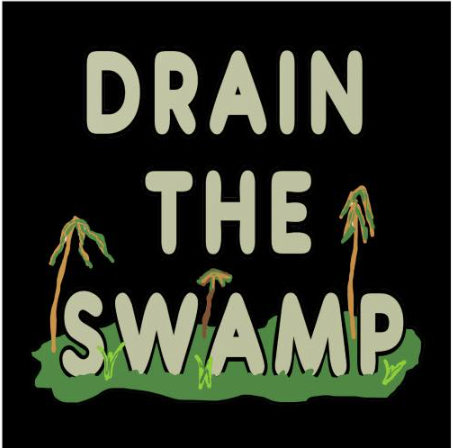
So much BS it’s breaking the scales of justice
In the latest drama unfolding in the storied community of Camp Branch Acres, we’ve been treated to a spectacular show of legal missteps, power grabs, and a dash of Google-fueled pedantry. At the heart of this tale are two of our most notorious characters: Kelle Mahme, the aspiring dictator with a flair for backfiring schemes, and Pedantic Phil, the board member who mistakes Google searches for legal expertise.
The Power Grab: Kelle Mahme’s Code of Conduct Conundrum
Let’s start with Kelle Mahme, who recently attempted what can only be described as a clumsy coup d’état. Armed with a code of conduct and a mission to tighten her grip on the board, Kelle set the stage for what she must have believed would be her crowning achievement. The plan was simple: introduce a code of conduct, force board members to sign it, and include a sneaky little clause that demanded their immediate resignation if they refused. What could possibly go wrong? Phil read this in its entirety at the meeting – check out the fascist crap in number 8.
Kelle, ever the tactician, sent out the code of conduct in advance, with each board member’s name already neatly typed next to a line for their signature. It was a classic move—put them on the spot, make them feel obligated. But why stop there? She followed up with a barrage of text messages, practically begging them to reveal whether they’d sign. After all, nothing screams “confidence in leadership” like repeatedly nudging someone to agree to something they never wanted in the first place.
Listen to Kelle make her power grab
Of course, Kelle’s grand plan didn’t go off without a hitch. When the board members refused to be bullied into submission, she was left scrambling, backpedaling faster than a cyclist on a steep hill. What was supposed to be her moment of triumph turned into a fiasco, leaving Kelle looking less like a master strategist and more like a floundering opportunist. The code of conduct, designed to consolidate her power, instead highlighted her desperation and disregard for proper procedure. Phil tried to explain this was all just a “draft” he downloaded off of the internet. However, why was this submitted to board members to sign, and the mention of it being a draft was only after it had been submitted in the meeting as a pre-vote description.
Pedantic Phil’s Facebook Fiasco
As if Kelle’s blunders weren’t enough to keep the community entertained, Pedantic Phil decided to jump into the fray with his own brand of unintentional comedy. Fresh off a Google search, Phil took to Facebook to share his newfound “knowledge” of the Texas Property Code. His goal? To clarify the voting situation that Kelle had already mucked up. His result? A post so full of errors and logical leaps that it left everyone scratching their heads.
Phil, in his pedantic glory, tried to explain that the association wasn’t required to provide more than one voting method, completely overlooking the fact that the law mandates property owners must be allowed to vote by absentee ballot or proxy. It was a classic case of someone knowing just enough to be dangerous—but not enough to be helpful. Method of voting (fax, email, snail mail) is not the same as form of ballot (live, absentee, proxy). I thought Phil was supposed to be a well-experienced board member in various organizations across the country?
Phil even admitted that he posted his “legal” opinion without even looking at the letter from Fears Law. That’s what I want – a board member that doesn’t take the time to read a letter sent to the association by an attorney. His post, intended to reassure the community, only served to deepen the confusion and highlight the growing divide within the board.
Luckily, Nurse Ratched was on hand to set the record straight. With the precision of a seasoned advocate, she dismantled Phil’s arguments, pointing out that the choice of voting method belongs to the property owners, not the association. It was a lesson in how to gently (but firmly) correct someone who’s out of their depth. Phil, to his credit, eventually admitted he might have misinterpreted things—though not without trying to save face by suggesting he was just trying to help the association heal. Bless his heart.
Joe Reason had a great moment when he explained that all of this other stuff is extraneous – the road has always been, and always should be, the priority. As he explains, the board is working on everything BUT the road.
Listen to Joe Reason by clicking here
The Collapsing Power Structure
So, where does this leave us? On one side, we have Kelle, whose overzealous attempts to seize control have only served to expose her weaknesses. Her unilateral decision to disallow proxy votes—a clear violation of Texas law—should have been the final nail in her coffin as chair. But, of course, in Camp Branch Acres, things are never that straightforward.
On the other side, we have Pedantic Phil, whose earnest but misguided attempts to navigate the murky waters of property law have done little more than muddy the waters further. His reliance on Google and his confusion over basic legal principles have made him the unwitting comic relief in this ongoing saga.
Conclusion: A Community in Chaos
As the dust settles on this latest episode, one thing is clear: Camp Branch Acres is a community at a crossroads. With a chair who seems determined to rule by fiat and a board member who confuses internet searches with legal training, the path forward is anything but clear. But one thing is certain—there will be no shortage of drama, confusion, and perhaps a few more Facebook posts to keep the community entertained.
In the end, Kelle Mahme’s power grab and Pedantic Phil’s Google gaffes serve as a cautionary tale for anyone thinking of taking the reins in Camp Branch Acres. Leadership requires more than just ambition or a decent internet connection—it requires a respect for the rules, a willingness to listen, and maybe, just maybe, putting a stop to the amateurish legal interpretations by non-lawyers to justify their unnecessary and illegal actions.

Leave a Reply
You must be logged in to post a comment.